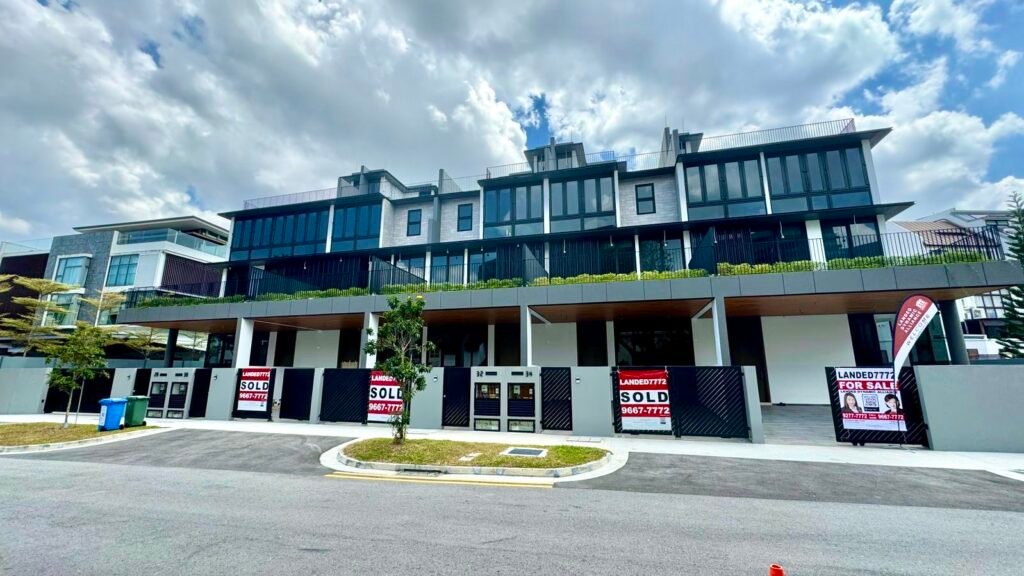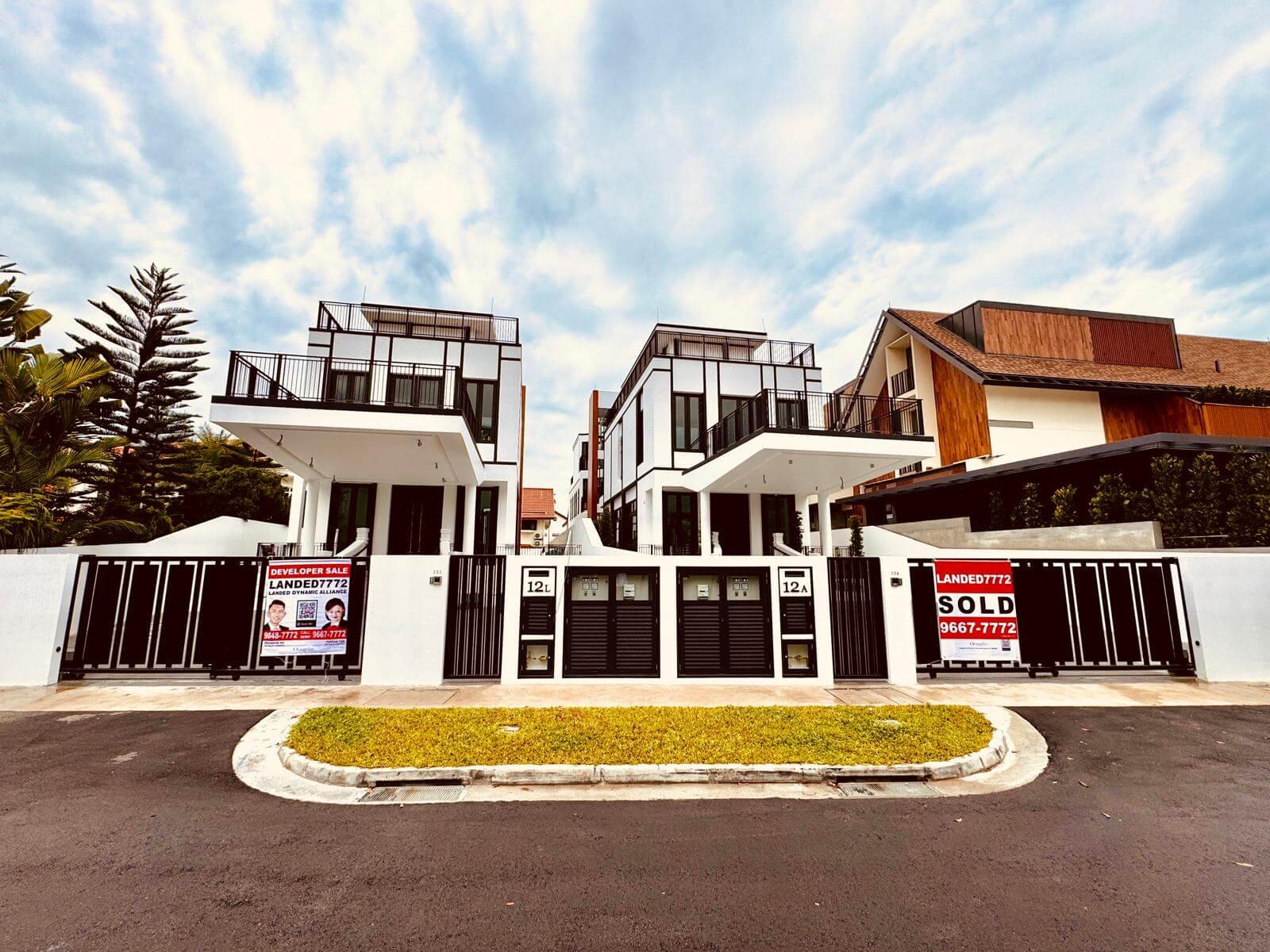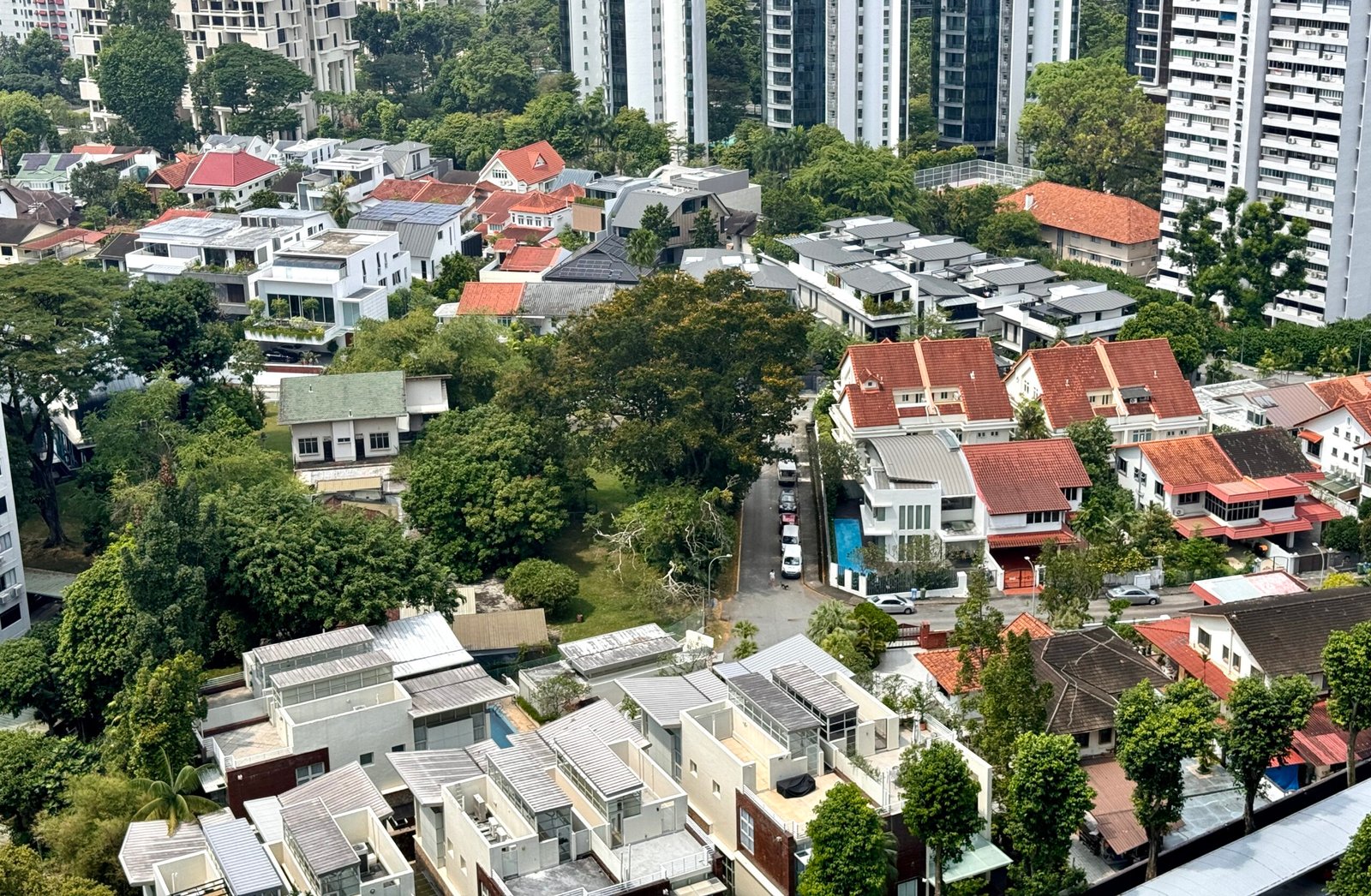In the dynamic real estate landscape of Singapore, potential homeowners often face the dilemma of choosing between landed properties and cluster houses. Both options come with their unique sets of advantages and challenges, making it essential for buyers to understand the nuances before making a decision. This article delves into the key differences, benefits, and potential drawbacks of landed properties and cluster houses in Singapore, providing a comprehensive guide for prospective buyers.
Understanding Landed Properties

Landed properties in Singapore refer to residential units that are built on individual plots of land. These include bungalows, semi-detached houses, and terrace houses. The most significant advantage of landed properties is the ownership of the land on which the house stands. This ownership provides homeowners with greater control over renovations and expansions, offering a level of flexibility that is not typically available with other types of housing.
Types of Landed Properties:
- Detached Houses (Bungalows): Standalone houses that offer maximum privacy and space.
- Semi-Detached Houses: Houses that share a common wall with another house, offering a balance between privacy and communal living.
- Terrace Houses: Houses that are part of a row of similar properties, sharing walls on both sides with neighboring units.
Benefits of Landed Properties:

- Space and Privacy: Landed properties typically offer more space, both indoors and outdoors, providing a higher degree of privacy.
- Customization: Owners have the freedom to renovate and customize their homes extensively.
- Long-Term Investment: Landed properties are often seen as more stable investments, with potential for higher appreciation over time due to the limited supply of land in Singapore.
Challenges of Landed Properties:
- High Cost: The cost of purchasing and maintaining a landed property is significantly higher compared to other housing types.
- Maintenance: Homeowners are responsible for the upkeep of the entire property, including the land and external structures.
Understanding Cluster Houses
Cluster houses are a hybrid between landed properties and condominiums. They offer the benefits of communal living, with shared facilities such as swimming pools, gyms, and security services, while still providing the feel of a landed property. Cluster houses are typically strata-titled, meaning that while homeowners have exclusive use of their unit, the land and communal areas are co-owned with other residents.
Types of Cluster Houses:
- Strata Landed Houses: Houses that resemble traditional landed properties but come with shared communal facilities.
- Townhouses: Multi-storey houses that share one or more walls with neighboring units and offer shared amenities.
Benefits of Cluster Houses:
- Shared Facilities: Residents enjoy access to communal facilities similar to those in condominiums.
- Lower Maintenance: The cost and effort of maintaining common areas are shared among all residents.
- Community Living: Cluster houses foster a sense of community, offering opportunities for social interaction and collective activities.
Challenges of Cluster Houses:

- Less Privacy: Shared walls and communal facilities may result in less privacy compared to standalone landed properties.
- Strata Fees: Homeowners are required to pay monthly maintenance fees for the upkeep of shared facilities and common areas.
- Limited Customization: Renovations and modifications are often subject to approval by the management committee.
Key Considerations for Potential Buyers
When deciding between a landed property and a cluster house, several factors should be considered:
- Budget: Landed properties generally require a higher initial investment and come with higher maintenance costs. Cluster houses, while more affordable, still require payment of strata fees.
- Lifestyle: Those seeking maximum privacy and the freedom to customize their living space may prefer landed properties. In contrast, individuals who value community living and access to shared facilities might find cluster houses more appealing.
- Maintenance: Potential homeowners should consider their willingness and ability to manage the maintenance of their property. Landed properties demand more hands-on maintenance, whereas cluster houses offer a more convenient option with shared upkeep responsibilities.
- Location: The availability of landed properties is more limited, especially in prime locations, making them a rarer commodity. Cluster houses, on the other hand, are often found in well-developed areas with good access to amenities.
- Future Value: While both property types can appreciate in value, landed properties, due to their limited supply, often see higher long-term appreciation. However, well-maintained cluster houses in desirable locations can also offer substantial returns on investment.
Conclusion: Making the Right Choice
Choosing between a landed property and a cluster house in Singapore ultimately depends on individual preferences, lifestyle, and financial considerations. Landed properties offer unparalleled privacy, space, and long-term investment potential, making them ideal for those who prioritize these factors and can afford the higher costs. Cluster houses, with their blend of communal living and private space, provide a more affordable and convenient option for those who enjoy shared amenities and a sense of community.
Understanding the unique features and benefits of each property type is crucial for making an informed decision. Prospective buyers should carefully evaluate their needs, preferences, and financial situation before making a choice. Regardless of the decision, both landed properties and cluster houses have their own charm and advantages, contributing to the diverse and vibrant real estate landscape of Singapore.



